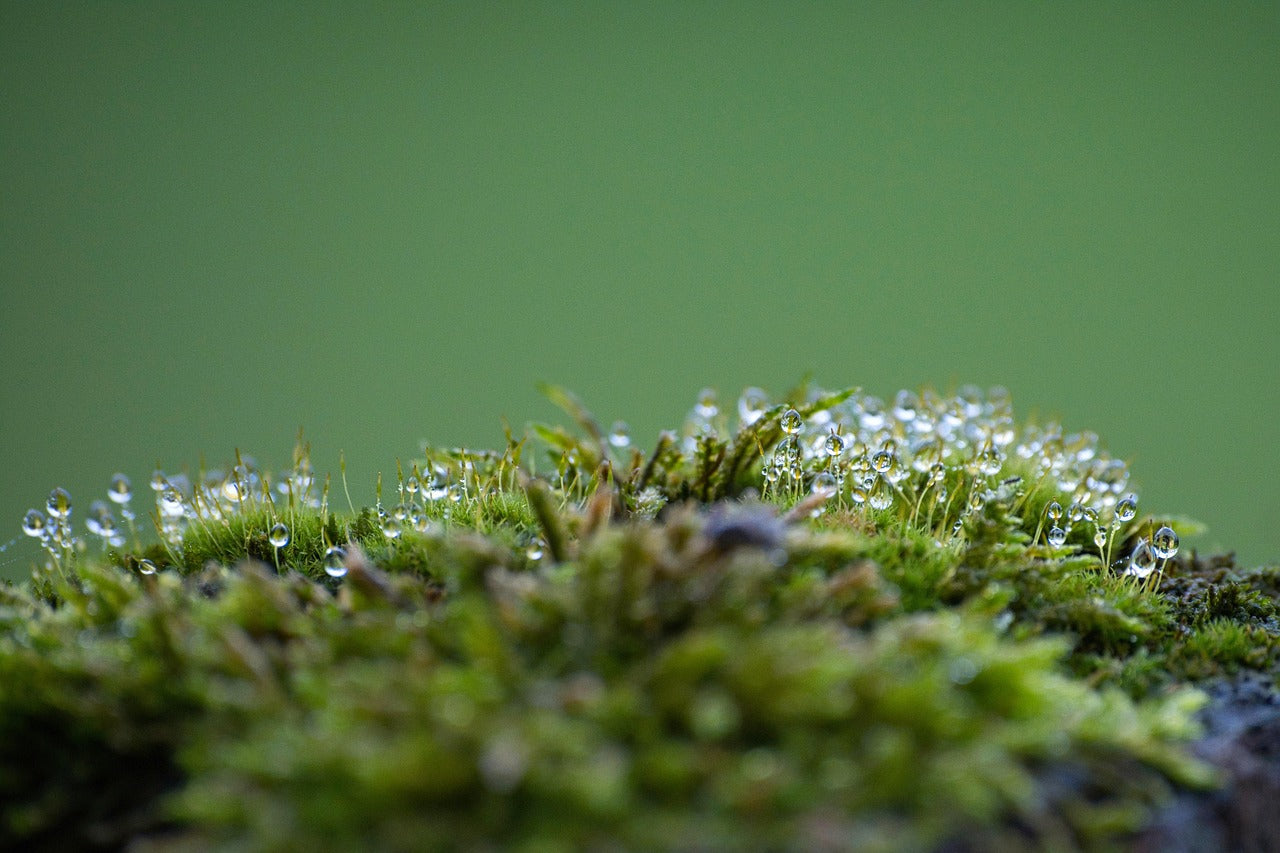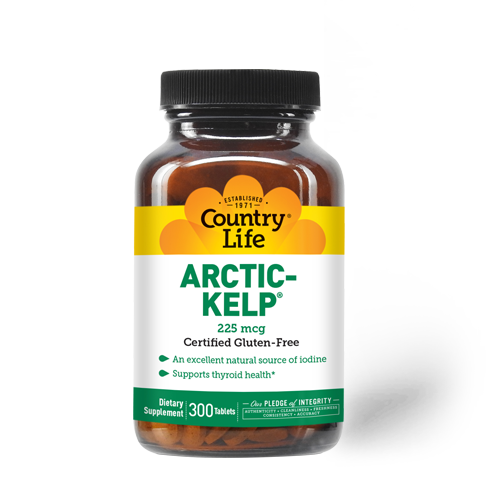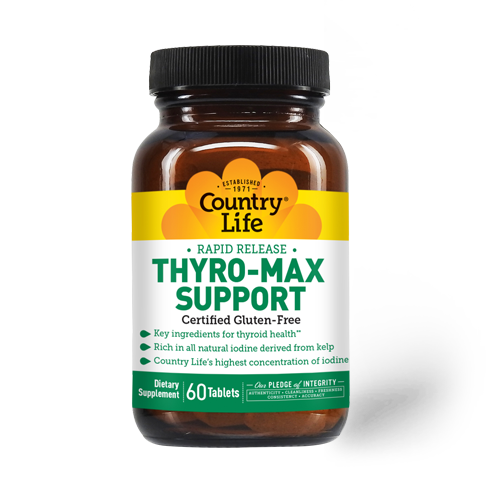Sea moss, a type of red algae, has gained popularity as a superfood for supporting thyroid function, promoting skin health, enhancing gut health, and overall nutritional wellness.
But it’s not the only sea vegetable on the superfood block!
Others, such as kelp, have comparable nutritional value and health benefits, are easily accessible, and may even be more economical.
If you’re looking for alternatives to sea moss, read on to learn about how it stacks up to kelp in terms of nutritional value, proven benefits, and more.
Sea Moss Versus Arctic Kelp: What’s The Difference?
Sea moss and kelp are both sea vegetables harvested or cultivated in different parts of the ocean.
They are both considered superfoods and highly prized in various parts of the world as functional foods and medicinal plants, and they are both a natural source of iodine.
However, they also have distinctive features and benefits, which we’ll discuss next.
What is Sea Moss?
Also known as Irish moss or scientifically as Chondrus crispus, sea moss is a sea vegetable native to the Caribbean and the North Atlantic Coast.
Although most sea vegetables are brown, green, or red, sea moss may be green, red, purple, yellow, or gold.
It is primarily harvested as a source of carrageenan, a controversial food additive used as a thickener, binder, and stabilizer in foods and supplements.
It has been prized for centuries as a nutrient-rich traditional food, a beauty aid, and has been used in traditional medicine and as a supplement.
These days, you can find it in supplements, gels, flakes, or powders, and skin care products.
We’ll cover the benefits of sea moss in subsequent sections
What is Kelp?
If you live or have visited the Pacific Ocean, you’ve likely seen, touched, or swum through kelp.
Native to northern Japan, this brown seaweed, also known as Kombu, is prevalent throughout the Pacific Ocean and is considered a superfood across cultures. It is also a climate-friendly food due to the carbon sequestration properties of kelp forests.
Kelp is rich in minerals and serves as a natural source of glutamates (think nature’s MSG), making it a popular flavor enhancer.
We discuss the benefits of kelp in the next section.
Benefits of Sea Moss
The sea moss trend has taken TikTok by storm, with advocates claiming this gel-like substance has transformed their health and beauty.
Here’s what the studies (sources at the end of the article) say about the potential benefits of taking sea moss:
- Contains natural iodine, which supports thyroid function, immunity, and brain function
- Contains algal polysaccharides, a type of antioxidant that may promote normal cholesterol, normal blood pressure, metabolic function, immune function, and inflammatory response
- It is a rich source of gut-friendly fiber and prebiotic fiber, which feeds healthy gut microbes and promotes normal digestion and microbiome function
- Provides various benefits for immune function via its beneficial effects on the microbiome, iodine content, zinc content, and potential anti-bacterial and anti-viral properties
- Contains about 1.5 grams of plant-based protein per 100-gram serving
- Contain omega-3 fatty acids, which help promote a normal inflammatory response, cardiovascular function, and more
- Has mucilaginous properties that help soothe the gut
- Contain various vitamins and minerals, such as calcium, iron, magnesium, zinc, folate, vitamin A, and choline
- Sea moss and its extracts have documented skin care benefits, including anti-photo-aging properties (sun damage), acting as a humectant (retains skin’s moisture), and carrageenan has antibacterial properties
Sea moss is also an effective natural thickener in cooking and DIY skin care products.
Drawbacks of Sea Moss
- May contain heavy metals
- It could provide too much iodine if consumed in excess
Benefits of Arctic Kelp
Kelp is less trendy than sea moss at the moment, but that doesn’t mean it’s less of a nutritional powerhouse.
Like sea moss, this ancient sea veggie has a lot of impressive research behind it.
The following are some of the cited-below studied health benefits of kelp:
- Contains natural iodine, which supports thyroid function, immunity, and brain function
- Contains various nutrients such as vitamin K, vitamin A, folate, magnesium, iron, zinc, choline, and calcium
- Contains a special type of protein, fucoxanthin, which studies suggest may reduce fat tissue and promote normal inflammatory response and metabolic health.
- Contains alginates, a type of bioactive compound that studies suggest may help with fat loss, detoxification, and brain function.
- May provide cardiovascular health benefits, such as supporting normal cholesterol levels
- Contains natural antioxidants that promote a normal inflammatory response and optimal cellular health
- Contains 1.6 grams of plant-based protein per 100-gram serving
- Is a natural source of omega-3 fatty acids
- Fucoxanthin has documented skin benefits, including reducing UVA/UVB damage, cooling inflammation, helping with skin tone, acting as a humectant (retains skin’s moisture), and reducing skin allergies. It also has antibacterial and antifungal properties.
Kelp is also used to flavor various dishes or as a flavor enhancer for broths and sauces.
Drawbacks of Arctic Kelp:
- May contain heavy metals
- It could provide too much iodine if consumed in excess
As you can see, sea moss and arctic kelp have a lot in common, which is typical of sea vegetables and algae.
Which one is right for you? It depends on what you’re looking for.
So, Is Kelp a Good Alternative to Sea Moss?
In short, yes!
Kelp has many comparable benefits to sea moss, including promoting thyroid function, metabolic function, heart health, and brain function, as well as being a rich source of vitamins, minerals, and antioxidants.
Kelp is also a good source of natural iodine, making it ideal for those looking for this type of thyroid, immune, or brain support.
Exceptions? Always.
Sea moss may offer greater gut health and digestive health benefits due to its mucilaginous properties and prebiotic content.
It’s also more widely used in skin care products, but, as mentioned previously, kelp and its extracts are used for the same purposes and has comparable benefits.
Kelp also doesn’t have the thickening properties of sea moss, which may be a deal-breaker for cooking or DIY skin care.
The bottom line is kelp makes an excellent alternative to sea moss for most people as it typically costs less and is more readily available.
How to Find Clean Arctic Kelp
Country Life has been a pioneer in nutritional science and dietary supplements for over 50 years, including clean Arctic Kelp.
Our kelp is sourced wild from the pristine arctic waters, far away from industrial pollutants and refineries.
It is a natural source of iodine, containing 225 mcg (150% of the daily value) per serving.
It’s also affordable, easy to take, 100% natural, tested for purity (heavy metals, molds, pathogens, etc.), identity, and potency, and made in an NSF-certified Gluten-Free and Organic manufacturing facility.
Due to the far-reaching benefits of arctic kelp, we do not offer sea moss supplements at this time.
Try our Arctic Kelp and we think you’ll agree its health and cost benefits are comparable—if not superior—to sea moss.
Sources mentioned in this article:
- “An Overview to the Health Benefits of Seaweeds Consumption”. Mar Drugs.
- “Seaweed, Irish moss, raw”. USDA Food Data Central.
- “Identification and Characterization of miRNAs in Chondrus crispus by High-Throughput Sequencing and Bioinformatics Analysis”. Scientific Reports.
- “Prebiotic effects of diet supplemented with the cultivated red seaweed Chondrus crispus or with fructo-oligosaccharide on host immunity, colonic microbiota and gut microbial metabolites”. BMC Complement Altern Med
- “Components of the cultivated red seaweed Chondrus crispus enhance the immune response of Caenorhabditis elegans to Pseudomonas aeruginosa through the pmk-1, daf-2/daf-16, and skn-1 pathways”. Appl Environ Microbiol.
- “In vitro activities of kappa-carrageenan isolated from red marine alga Hypnea musciformis: Antimicrobial, anticancer and neuroprotective potential”. International Journal of Biological Macromolecules.
- “Chemical composition and moisture-absorption/retention ability of polysaccharides extracted from five algae”. International Journal of Biological Macromolecules.
- “The modulation of pancreatic lipase activity by alginates”. Food Chemistry
- “Fucoxanthin from edible seaweed, Undaria pinnatifida, shows antiobesity effects through UCP1 expression in white adipose tissues”. Biochem Biophys Res Commun.
- “Seaweeds as Preventive Agents for Cardiovascular Diseases: From Nutrients to Functional Foods”. Marine Drugs.
- “Fucoxanthin, a marine carotenoid present in brown seaweeds and diatoms: metabolism and bioactivities relevant to human health”. Mar Drugs.
- “Beneficial Effects of Marine Algal Compounds in Cosmeceuticals”. Marine Drugs.
- “Photoaging and Potential Skin Health Benefits of Seaweeds”. Marine Drugs














Share:
Synthetic vs. Whole Foods Vitamins: Which Is Better? (The Answer May Surprise You)
10 Best Supplements For The Keto Diet